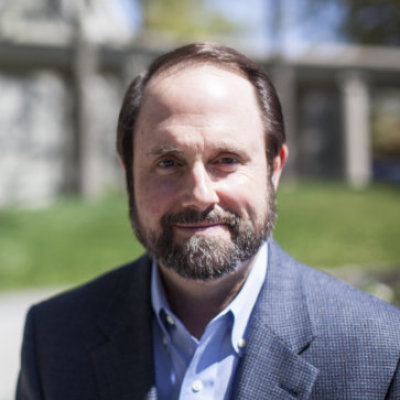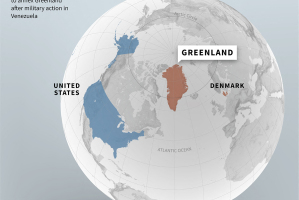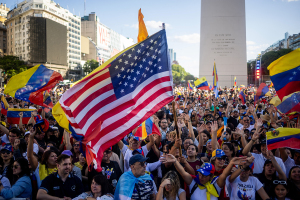3 explanations for the crisis and Jesus’ solution that changes everything
I have never felt less qualified to write a Daily Article than I do this morning.

I am a white person who has never faced a single moment of racial discrimination in my 61 years of life. As a result, I cannot pretend to understand what it is like to be unfairly treated because of the color of my skin.
I grew up in a middle-class community. As a result, I cannot understand what it is like to despair of a better financial future.
I have never been treated unfairly by the criminal justice system. As a result, I cannot understand what it is like to fear the police and the courts.
I do not own or work at a business affected by the violence of recent days. As a result, I cannot understand what it is like to see my dreams and future destroyed in response to a tragic death in Minneapolis for which I am not at fault.
Fortunately, I do not write the Daily Article to offer my personal opinions. My mission is to help us interpret the news of the day in cultural and biblical context. This morning, I will draw on expert guides to help us do both.
Three explanations
As I wrote last month, the death of George Floyd on Memorial Day was a horrible tragedy. Our Father hates racism and demands that we value each other as he loves us (Genesis 1:28; Galatians 3:28).
Cities across America have seen mass demonstrations following Mr. Floyd’s death. The entire Washington, D.C., National Guard was called in to respond to protests outside the White House and elsewhere in the nation’s capital. In New York, six rioters repeatedly beat a woman with metal pipes, 2x4 planks and metal ladder as she tried to protect a business downstairs. At least 40 cities have imposed curfews.
Writing for Bloomberg Opinion, John Authers examines the way Americans are responding to the COVID-19 pandemic. However, I believe his insights apply just as perceptively to the crisis unfolding across our country after George Floyd’s tragic death. Authers utilizes the work of British political philosopher Steven Lukes to describe three schools of thought at work in our society. Each of them helps explain the unrest embroiling our cities.
Utilitarians seek the greatest good for the greatest number. This is the impulse behind majority-rule democracy. However, this approach can put minority populations at risk, a fact experienced by many racial minorities across our nation’s history.
Communitarians want us to do what advances the “common good” within our community. But when your community’s common good conflicts with mine, what do we do? Some are justifying the violence of recent days as necessary to effect change, even if minority-owned and operated businesses are among the victims of such violence. In this view, previous calls for change have gone unheeded, requiring an escalating response that causes majority populations to feel the pain of minority victims.
Libertarians insist that individual freedom is paramount. But as Authers notes, when citizens are left alone, “many are left to sleep on the street, city centers are full of sleaze, and a few rich people benefit from gambling.”
Each of these viewpoints is foundational to American society. Can they be reconciled? According to Isaiah Berlin, the twentieth-century British philosopher and essayist, the answer is no.
Responses to George Floyd’s death are making his point. Some minorities feel they must demonstrate in large numbers to bring about change with the utilitarian majority. Some are willing to march (and some even to perpetuate violence) in other communities to make themselves heard. Many are protesting the libertarian lack of resources and compassion for people in need.
Jesus’ solution
I began today’s Daily Article by admitting that I do not know what it is like to experience racial discrimination, face systemic poverty, encounter injustice, or suffer as an innocent victim of violence.
But Jesus does.
He lived his life as a Jew under Roman occupation. He was so impoverished that he had “nowhere to lay his head” (Luke 9:58). After his arrest, he was subjected to what has been called “the most unjust trial in human history.” He suffered and died in innocence (Isaiah 53:9; Hebrews 4:15), atoning for sins he did not commit to purchase our salvation (Romans 5:8).
As a result, Jesus has the moral authority to speak to this crisis in a way I do not. For the next few days, we’ll discuss his example and teachings as we seek his guidance together.
For today, let’s consider the single sentence that is often considered his foundational ethical principle: “Whatever you wish that others would do to you, do also to them, for this is the Law and the Prophets” (Matthew 7:12). This one maxim provides a way forward through the scourge of racism and violence in our day. And it reconciles the utilitarian, communitarian, and libertarian conflicts so endemic to our culture.
Consider: If every person did to others what they would want to be done to them, would racial prejudice exist? Or police brutality? Or violent responses?
Would a single person have ever been enslaved in this land or any other? Would even one of the 40.3 million people enslaved in the world today be victims?
Would the majority oppress the minority? Would members of one community oppress members of another? Would a single individual be left to face our fallen world alone?
This piece was originally published at the Denison Forum



























